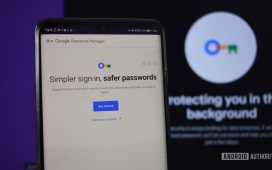National Power protested, saying, “What should happen if the five-member communications committee system is restored.”
![At a plenary session of the National Assembly's Science, Technology, Information, Broadcasting and Communications Committee on the 6th, Choi Min-hee, a member of the Democratic Party of Korea, is talking with Choi Hyung-doo, the secretary of the People's Power. [Photo source = Yonhap News]](https://www.wiredfocus.com/wp-content/uploads/2025/01/The-National-Assembly039s-Science-Technology-Information-and-Communication-Committee-passed.jpg)
The National Assembly’s Science, Technology, Information and Communication Committee passed a revision to the Act on Establishing the Korea Communications Commission with three or more members at a general meeting on the 6th.
At the general meeting of the Ministry of Science and ICT held earlier in the day, it passed a revision to the KCC’s establishment law, which passed the bill subcommittee. The bill, which was passed under the leadership of the opposition party, had 11 votes in favor, two against and one abstaining.
The amendment includes the minimum quorum of decisions at the Korea Communications Commission meeting as three, and the quorum of decisions is a majority of the members present. The government appointed a member of the Korea Communications Commission recommended by the National Assembly within 30 days and made the meeting of the Korea Communications Commission and the Korea Communications Commission open to the public live.
It has been pointed out that the current law does not stipulate the quorum of the decision of the Korea Communications Commission, so it has violated the nature of a consensus system over a decision made by the president-appointed chairman and two standing members.
In particular, the Democratic Party of Korea has strongly raised issues, saying that the Korea Communications Commission has decided on important issues such as the appointment of directors of public broadcasting and the change of YTN’s largest shareholder under a “two-person system.” The Democratic Party of Korea passed the impeachment motion against Lee Jin-sook, chairman of the Korea Communications Commission, in October, taking issue with the “two-person system.”
Rep. Choi Hyung-doo, the secretary of the People’s Power, objected, saying, “It is okay if the five-member communications committee system is restored, but is there a need to change the law?”
At the meeting, a revision to the Telecommunications Business Act aimed at eradicating illegal spam texts was also passed by the ruling and opposition parties. The amendment requires the government to check whether text resellers are certified when they try to register value-added telecommunications businesses. In addition, the Ministry of Science and ICT and the Korea Communications Commission periodically check compliance with business registration requirements.
Yoo Sang-im, Minister of Science and ICT, said, “As the revision of the law allows regular checks on compliance with registration requirements for mass text transmitters, illegal spam can be eradicated and the mass text market can be normalized.”
At the meeting, a revision to the Act on the Establishment of the Korea Communications Commission was also processed to include the Korea Communications Commission as a subject to vote on the deletion of drug trading information, gambling and gambling information in writing.










